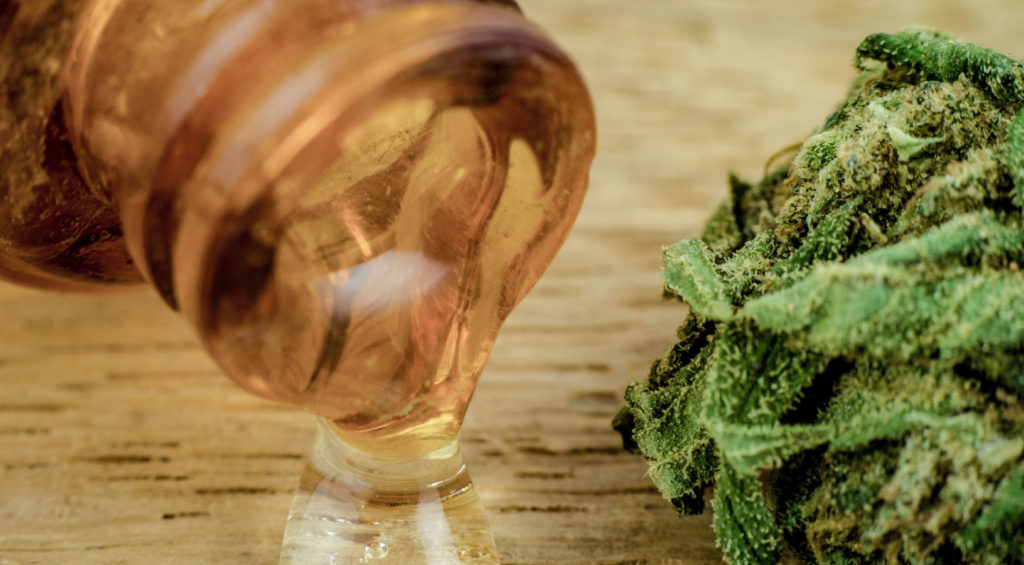
In this article, we examine the current state of medical evidence and the most up-to-date recommendations regarding CBD oil and breastfeeding. We look at what is known about how CBD oil affects women’s ability to lactate and breastfeed, as well as the short- and long-term effects of this compound on the baby.
Table of Contents
- Using CBD Oil and Breastfeeding—Is It Safe?
- What Is CBD Oil?
- What Are the Side Effects of CBD Oil?
- What Are the Concerns for the Baby?
- What Is the Bottom Line on CBD Oil and Breastfeeding?
Using CBD Oil and Breastfeeding—Is It Safe?
Most of the attention given to investigating the safety of cannabinoids in breastfeeding has been focused on marijuana use. According to the CDC, we don’t know enough about the safety of marijuana in lactation to say whether or not it is safe. However, data about marijuana does not translate well to CBD oil use, because some marijuana strains have very little CBD content, and taking CBD oil involves much higher levels of CBD than using marijuana does.
According to the U.S. National Library of Drugs and Lactation database (LACTMED), an authoritative source of information for breastfeeding toxicology, CBD has not been studied in breastfeeding mothers, but has been detected in the breast milk of some mothers who use cannabis.
One study showed that CBD was detectable in 9% of lactating women who used marijuana—but, again, we have no information about what CBD concentration was in the marijuana. Studies need to be conducted to investigate the use of CBD oil and breastfeeding.
What Is CBD Oil?

CBD (cannabidiol) is one of over 100 biological compounds found in the resin of the cannabis plant, collectively known as cannabinoids. Although not much is known about most cannabinoids, CBD is the subject of much public interest and scientific research because it is believed that it may possess properties that make it useful for some health applications.
Unlike its fellow cannabinoid THC, CBD is not psychoactive, and therefore does not cause intoxication (i.e. it does not make people “high”). Consequently, CBD does not have the potential for abuse and addiction that THC carries, and it’s not associated with many of the adverse effects that come with intoxication, such as impaired driving. As such, CBD enjoys a much less restrictive legal status than does THC, and is generally more easily available.
It’s important to note that the CBD that used in CBD-infused products comes from the industrial hemp plant, not the marijuana plant. They are both part of the cannabis sativa family, they are very different plants and contain vastly different levels of CBD and THC. CBD-infused products come in many forms, from vape pens to edibles (including chocolate!).
When CBD is ingested, it can only be properly absorbed if it is dissolved in oil. The oils used to make CBD oil include various plant oils, such as oil from the hemp plant itself, or coconut oil. When CBD is dissolved in oil—forming CBD oil—it can be ingested or applied topically to the skin.
What Are the Side Effects of CBD Oil?
Side effects are rare and mild, and common side effects of CBD include fatigue, stomach upset, and irritability. CBD may also interact with some other medications and supplements, and there may be a safety concern in some instances. However, there is still much that is not known about CBD, including its side effects. According to the FDA: “there are many unanswered questions about the science, safety, and quality of products containing CBD… and there is very limited available information about CBD, including about its effects on the body.”
The FDA has also expressed concerns to consumers because of CBD products not containing the level of CBD indicated on the label, and because of the possibility of the presence of toxic contaminants, such as heavy metals and pesticides. This is why it’s important that, if you do use CBD products, you make sure you get them from a reputable company that has its products third-party tested for purity and content.
What Are the Concerns for the Baby?

LACTMED reports that no relevant published information is currently available about the effects of CBD in breastfed infants, either short-term or long-term. Likewise, no published information is available on the effects of CBD on the lactation and breastfeeding abilities of the mother. As such, the safety of combining CBD oil and breastfeeding has not yet been properly established.
Because CBD is highly fat-soluble, it is stored in body fat and slowly released into the bloodstream for a considerable length of time after the use of CBD. This means that it may appear in the breast milk long after the compound was last used. Again, this has not yet been properly studied and published.
What Is the Bottom Line on CBD Oil and Breastfeeding?
LACTMED recommends that even women who take CBD by prescription for epilepsy may wish to switch to an alternate drug while they are breastfeeding.
In the absence of definitive information about the safety of combining CBD oil and breastfeeding—or using other CBD products while breastfeeding—women should consult their physician prior to using CBD oil and breastfeeding.
